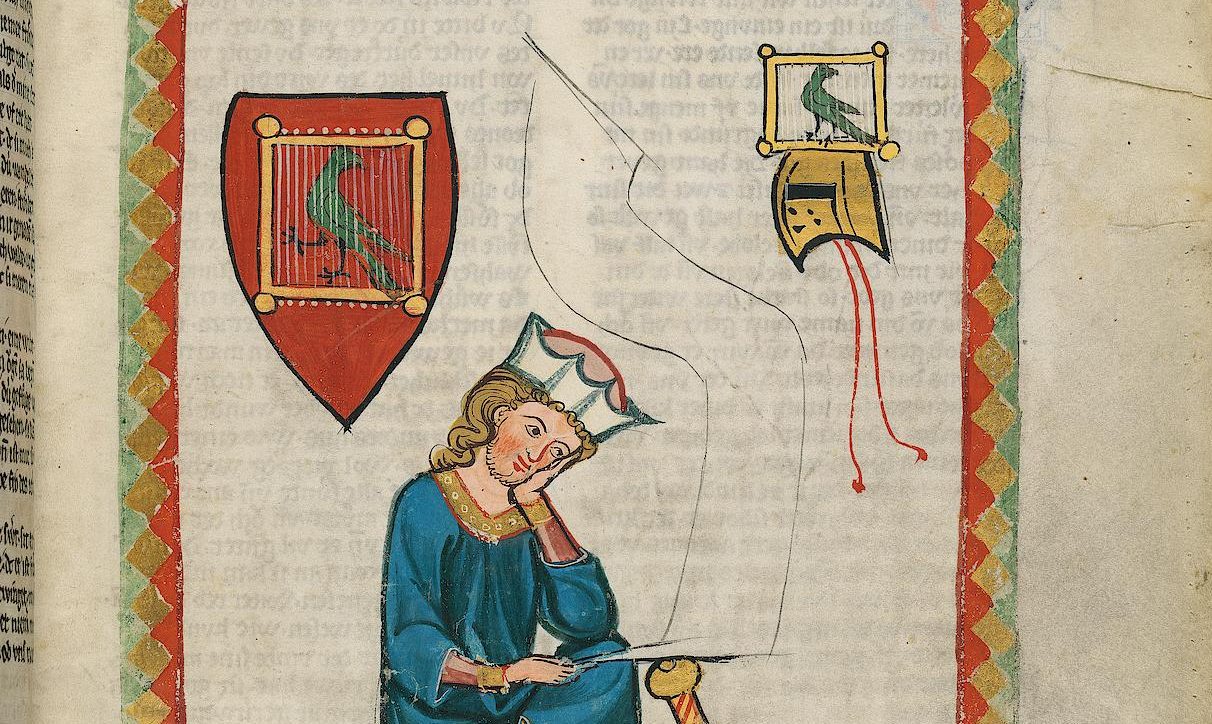The primary reason I threw my hat into the ring two years ago (as a first-year DPhil student) to help OMS run their events was because I was passionate about trying to help increase the access to and reach of the great variety of outstanding events that OMS was hosting. Especially in the deep-pandemic, when everyone (including myself) was learning how to make the best of things being done entirely online or in a hybrid format, it felt well worth giving a shot to help keep the medievalist community, in Oxford and abroad, in contact with one another in such a way. With this wish, a very modest amount of experience in running Zoom events and editing video, and having attended OMS events in the past, I was granted the opportunity to coordinate events for OMS. However, after two wonderful years, it is time for another person to take the reins.
The role requires overseeing the OMS Teams and YouTube Channels, being responsive by email to any queries about events, setting up Zoom streaming events, coordinating with individuals and institutions (such as TORCH, or the Bodleian Conservators or Centre for the Study of the Book) in both the preparation for and the real-time running of events (mostly hybrid and online, but also in-person), and maintaining open channels of communication before, during, and after events with the organisers and the rest of the OMS Team. For example, for an event such as the Murbach Hymns hybrid webinar (organised by Luise Morawetz), I was involved from the planning stage, helped to gather equipment and test rooms, monitored audio and visual in real-time for virtual presenters and attendees, and facilitated, recorded, edited, and uploaded the evening’s bilingual Singing from the Manuscript session (https://youtu.be/p4zImJl8ppY).
The Events Coordinator really comes down to two things: being organised, and being adaptable. Things will go wrong, but communicating with everyone involved and putting things in place ahead of time can save you when the Wi-Fi fails, when batteries run out, when someone is sick, or when the weather turns. Having an interest in much of the material is a bonus, but any medievalist should have this; and a little knowledge of any medieval or modern languages wouldn’t do any harm either, although this is not at all essential.
I had the privilege of facilitating a wide range of events: conferences, lectures, colloquia, plays, memorials, complines, and launches, all down to the variety of interests of medievalists at Oxford and around the world. One of my personal favourites was Alyssa Steiner’s Ship of Fools multi-manuscript event (https://youtu.be/8g3z6k4CSUg), showcasing surviving versions of the texts in different languages and editions that survive in Oxford, London, and Bamberg. Among the other events I was involved in, it was a real privilege to host Professor William Chester Jordan’s OMS Lecture (https://youtu.be/PWRVIX4B3hE), a memorial for Peter Ganz (https://youtu.be/2rhXw0YQOWk), and another OMS Lecture delivered by the inimitable Dr Jim Harris (https://youtu.be/vKs5wKg2Eh4). I would be remiss not to mention the other huge perk of the job: working with all the wonderful people whose research inspires these events, and alongside the amazing OMS Team (including Nikki from TORCH) who are each as delightful as the last.
I would encourage anyone with a spare couple of hours per week (though often less is required), any knowledge of Zoom and Teams, and a desire to help contribute to the continuing evolution of Oxford Medieval Studies, to throw their hat into the ring.
Tom Revell is a DPhil student in Old English poetry at Balliol College, and a College Lecturer at Keble College. He is also a Research Assistant on the CLASP Project.
Main image credit: Frontispiece of Bible Moralisee, https://commons.wikimedia.org/wiki/File:God_the_Geometer.jpg






